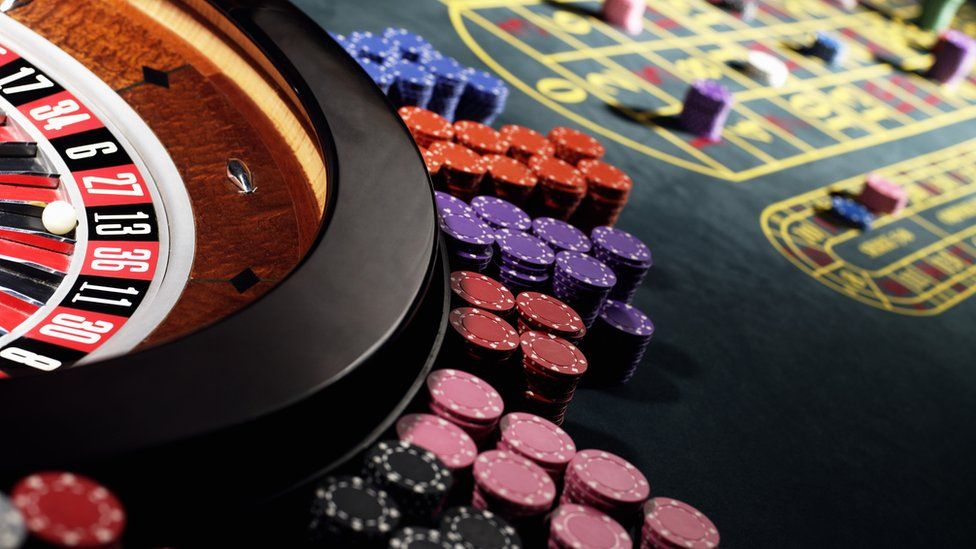
Casino games have long been a staple in human culture, offering not just entertainment but a fascinating reflection of our aspirations, wishes, and anxieties. From the spinning reels of a slot machine to the skill-based strategies of poker, these games encapsulate a variety of human feelings and incidents. At their core, casino games are not just a chance to make profits; they are a snapshot of life itself, where risk and reward merge and luck can change in an moment.
As players assemble around tables or sit in front of glowing machines, they take part in a ritual that transcends mere betting. These games reflect our innate desires for social interaction, excitement, and the pursuit of luck. They also reveal deeper truths about human nature, such as our relationship with luck and the excitement of the unknown. In exploring casino games, we discover not only the nuances of play but also the complex weave of the human experience, showcasing our interconnected narratives of goal and reality.
The Mind Behind Gambling
Gambling is intrinsically connected in the psyche of individuals, appealing to various emotions and desires. The excitement of risk-taking is a core aspect that draws players in, whether it’s excitement of spinning a roulette or the anticipation of drawing a winning hand in poker. This rush of adrenaline is often compared to other forms of excitement, as the unpredictability of outcomes triggers a distinct psychological response. Players often become captivated by the possibility of striking it rich, leading to an irresistible draw toward casino games.
Another, an essential component of the psychology behind gambling is the concept of optimism and ambition. Players often nourish fantasies of financial freedom and the opulent lifestyle that can accompany winning. This hope fuels their ongoing participation in casino games, as it provides a sense of purpose and the belief that a life-changing win could be just one bet away. The story of overcoming odds and finding success resonates with many, reinforcing their commitment to play and involve themselves with these games.
Finally, social dynamics play a significant role in gambling psychology. Gambling venues are designed to foster social interaction, where players gather to share the experience of wins and losses. This communal aspect not only amplifies enjoyment but also affects behavior, as individuals often mimic the actions of others in their vicinity. The social validation found in mutual thrill can magnify the emotional experience, making casino games a reflection of not just personal desires but also collective engagement within the gambling community.
## The Dual Nature of Risk and Reward
Casino games embody the fragile balance between danger and gain that resonates deeply with human nature. The thrill of placing a bet is often accompanied by a surge of excitement, as participants are confronted with the prospect of striking it rich, yet cognizant of the potential to suffer losses. This bipartisan experience reflects a fundamental aspect of life: the paths we choose often come with intrinsic risks, and the quest for benefit can compel us to take chances we might not otherwise consider. In this way, gambling activities mirror real-world choices, enticing players to gamble not just their funds, but also their dreams.
The allure of big prizes and winnings fuels a wave of hope, motivating players to dream of a better future that could manifest from a fortunate turn of the roulette or dealing of a hand. This hope can motivate individuals to engage in greater risks, pushing them to extend their limits in search of financial gain. However, just as in life, the outcomes of these decisions can lead to both victory and loss. The narratives of both jackpot winners and those who have faced losses everything at the tables demonstrate the unpredictable nature of luck and its significant impact on our existence.
Ultimately, the experience of engaging with gambling activities serves as a strong reminder of the human condition. Every session played is imbued with the tension of risk, as players weigh the rewards against the dangers. This dynamic not only highlights the excitement that comes with gambling but also reveals the vulnerabilities that come with the urge for more. As we navigate the challenges of decision-making and results in both the gambling world and in life, we find that the pursuit of risk and reward shapes our identities and journeys in profound ways.
Culture and Isolation in Gambling Culture
Casino culture is a unique mix of social engagement and personal endeavor, reflecting the contrasts of individual experience. Gamblers often come together around games, sharing in the thrill of the game, rejoicing in wins, and commiserating over losses. This communal aspect is vital, as it creates a sense of community and bonding among varied groups of people. Regular attendees to casinos may form friendships and develop routines, turning the casino into a second home where they feel connected to a larger community of gamblers.
However, the appeal of casino games can also result to loneliness. As players become engrossed in the excitement of gambling, they may isolate from personal connections or neglect to engage with the world outside the casino. For some, the search of a windfall can overshadow real relationships, leading to loneliness. The situation of being surrounded people yet feeling solitary is not uncommon, as the focus shifts from collective fun to the individual concerns of each individual’s journey.
This interaction of society and solitude creates a vivid mosaic that defines gaming culture. OKE179 It highlights the complexity of social interactions, where joy and despair exist together. Gambling venues serve as both a refuge for social engagement and a platform for individual challenges, demonstrating how deeply entwined our yearning for connection and the personal quest for wealth can be. In navigating this landscape, players confront their own narratives—seeking both the rush of the wager and the companionship of fellow gamblers, ultimately reflecting the broader spectrum of human experience.
